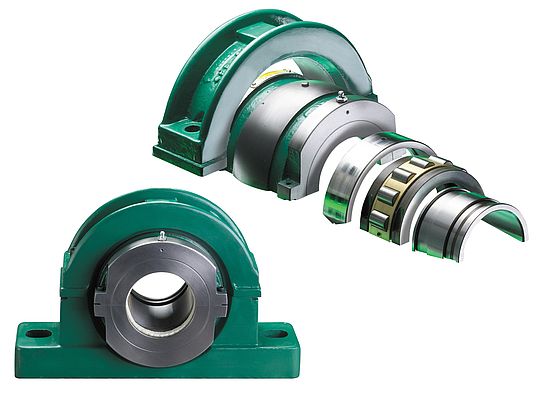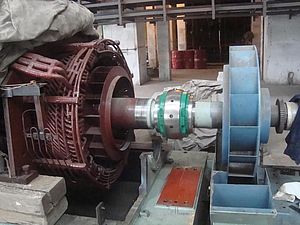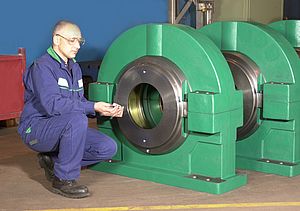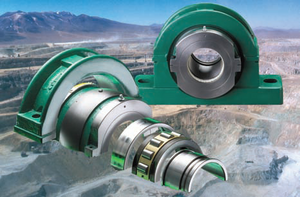SRB Split Roller Bearings from UK manufacturer, Revolvo Ltd, are playing a major role in the operation of the recently re-opened Hatfield Colliery near Doncaster. The SRB heavy duty 240 mm split bearing units are used on underground coal handling conveyors, due to their inherent ability to be replaced quickly - around 90% faster than solid bearings – and their sealing system, which optimises bearing life in the harsh mining environment.
The Hatfield Colliery reopened in May 2006, by accessing 27 million tonnes of high quality reserves in the Barnsley seam, and Longwall coal face production has resumed that has created jobs for over 300 mineworkers and a guaranteed coal supply for electricity generators. The mine has known reserves of 100 million tons, and weekly output is around 45,000 tonnes, producing annually over two million tonnes.
Re-opening of the mine was a major undertaking, involving substantial investment, which when a clean coal power station is built adjacent to the mine, could exceed £2.6 billion. One of the investments in the first stage of the reopening, were the large conveyor systems for handling in excess of 2 million tonnes of coal per year, supplied by Continental Conveyor of Sunderland. These conveyors are equipped with Revolvo’s SRB split bearings – Heavy Duty 240mm units on the main pulleys, with Medium Series 110 mm units on the tail pulleys. All of these SRB split roller bearings were manufactured with bored pocket precision brass cages as standard; meaning that they can be used underground without any modification.
This high material specification of the standard SRB bearings was a major factor in their specification; equally important were the bearings ease of maintenance – particularly important in the cramped conditions underground – and their superior sealing systems. SRB split roller bearings are much easier to fit and replace than solid bearings: fitting a SRB split roller bearing takes just 10% to 15% of the time required to fit a typical solid bearing. As a result, SRB split roller bearings reduce downtime substantially.
SRB split bearings also offer the benefit that they can be inspected in situ as part of a planned maintenance schedule; and have a longer life span because they cannot be cross-located.
In addition to being easier to fit, inspect and maintain than solid bearings, Revolvo’s SRB split roller bearings are providing Hatfield Colliery with the highest levels of reliability, due to the performance of their sealing systems.
The design of Revolvo’s SRB bearings means that they perform exceptionally well in harsh operating conditions, even with shaft misalignment. With SRB split bearings, the spherical location between the housing and pedestal support ensures that even under conditions of shaft misalignment, the seal will always remain concentric to the shaft. In contrast, solid mounted roller bearings under conditions of misalignment can suffer from non-concentric ineffective seals that will rapidly lead to premature and expensive - bearing failure.
Revolvo has taken this design advantage forward and developed many designs of high performance seals, which provide effective sealing even in the worst operating environments – even under water. The excellent performance of their labyrinth seals is evidenced by a recent application where Revolvo solved a major problem of premature wear on screw conveyor bearings in the Cement industry.
Cement dust – like coal dust - is highly abrasive; worse still, it is hygroscopic, which means that it absorbs the lubricating oil from the bearing grease, resulting in an abrasive paste of contaminated grease and cement dust that rapidly destroyed bearings and caused damage to the screw conveyor shaft. Revolvo were able to provide a long-term sealing solution to this problem, that incorporates special split steel labyrinth collars. Their arrangement prevents the ingress of dust and also the build up of cement dust in the area around the seal. As a result, the cement manufacturer is benefiting from vastly improved bearing life and a large reduction in downtime.





















